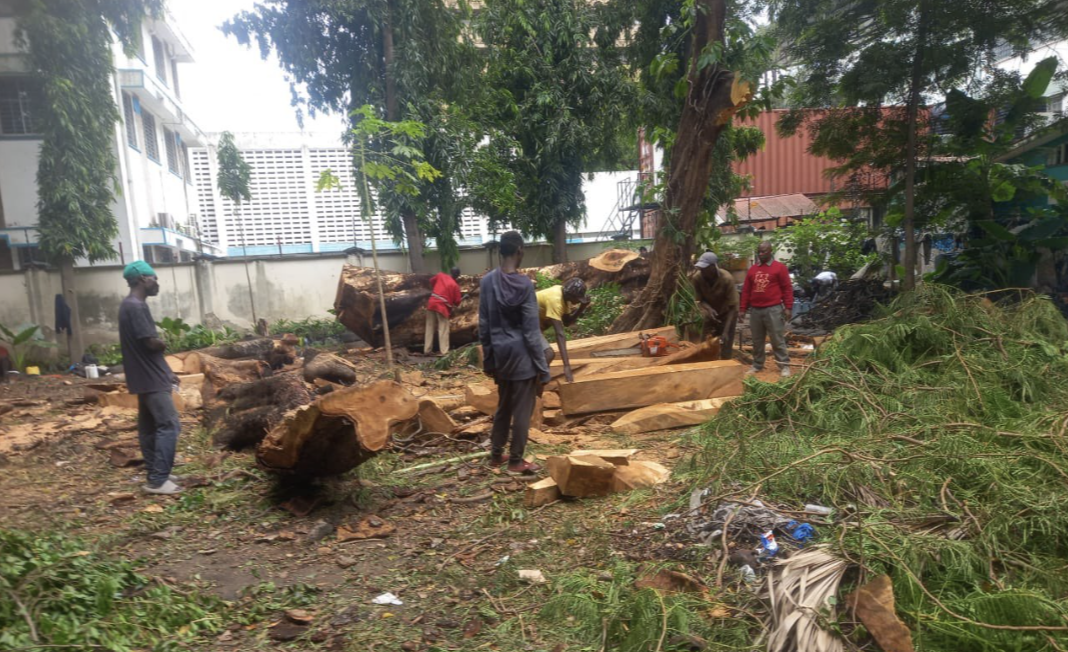
 Felling of trees at Uhuru Gardens in Mombasa, May 30, 2025. /PAULA KAHUMBU/X
Felling of trees at Uhuru Gardens in Mombasa, May 30, 2025. /PAULA KAHUMBU/X
Environmental advocates have issued a scathing response to the Mombasa County Government’s felling of trees from public spaces, calling for an immediate independent forensic ecological audit to assess the legality and environmental impact of the action.
The uproar follows a statement issued by the County Government on May 30, justifying the removal of trees from Uhuru Gardens, Forest Road, Railways Garden, and Pirates Beach.
The county claims the action was driven by safety concerns following a rapid assessment conducted after heavy rainfall warnings.
Officials stated that several trees were identified as "aged or weakened" and therefore posed a public hazard.
However, conservationists are not convinced.
“This is not disaster risk management—it’s ecological destruction disguised as stewardship,” said Paula Kahumbu, a leading environmental voices, in a sharply worded statement released Friday.
“Photo evidence clearly shows young, thriving trees were cut down. This calls into question the credibility of the County's entire assessment process.”
Kahumbu and a coalition of environmental groups are now demanding an independent forensic ecological audit of all tree removals carried out by the county in 2025.
They are also calling for public release of the environmental impact assessment (EIA) that preceded the tree removal, disclosure of officials and contractors involved in authorizing and executing the operation; replanting of native tree species at the original sites and accountability for any wrongdoing, including potential criminal charges.
The removed trees include those that provided critical green cover and served as habitats for bats and other urban wildlife.
While the county says it has launched a reforestation plan to offset the ecological loss, environmentalists argue this is inadequate and belated.
“This is a classic case of greenwashing,” Kahumbu said. “You cannot cut down healthy urban trees without public consultation, then issue a press release promising reforestation as if that reverses the damage.”
The County’s Department of Water, Natural Resources and Climate Change Resilience defended the move as a difficult but necessary step.
“The decision was not taken lightly. Our duty is to safeguard human life while also protecting the environment,” the department said in its statement.
The county is urging residents to report any potentially hazardous trees as part of ongoing public safety efforts.
But activists insist that public safety must not be used as a blanket excuse for opaque or reckless environmental decisions.
“This is about governance,” Kahumbu emphasised. “Who benefits from the removal of healthy trees in prime urban areas? The public deserves answers.”
The demand for an independent audit is gaining traction online, with residents expressing anger over the lack of public consultation and fears that Mombasa’s shrinking green spaces are being lost to commercial interests.
As pressure mounts, the County Government of Mombasa faces a critical choice: open the books and restore public trust—or risk being seen as complicit in the quiet erasure of the city’s natural heritage.
















